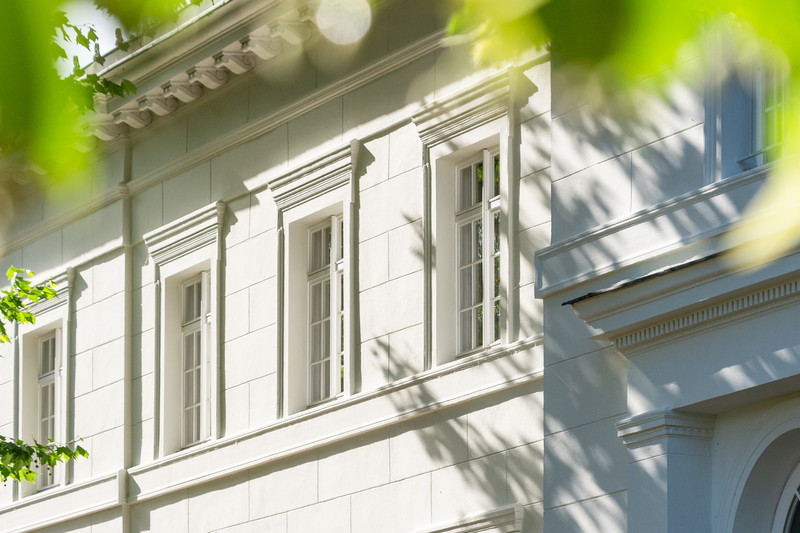
Schauplatz der Moderne
Berlin – Versuchslabor urbaner
Modernisierung um 1800
('Berlin – experimental urban
modernisation laboratory
around 1800')
Around 1800, Berlin attracted intellectuals, authors and artists like no other German city at the time – notwithstanding the 'Weimar Court of the Muses'. The visual arts, the theatre, philosophy and architecture all rapidly reinvented themselves. Especially the hundreds of salons, reading and literary societies, the clubs and the lodges promoted a cultural exchange between the different social classes and religions that was unparalleled, at the time. In 1801, one of its era-defining personalities, the poet Jean Paul, wrote: 'The lack of class consciousness in the tone here goes far beyond what is happening in Weimar. Here, the aristocracy mingles with the bourgeoisie, not in the way of water that is mixed with oil, where the oil will always float to the top and forms globules, but as well-blended as if alkali had been added to this mix, which then gels to become soap. Academics, Jews, officers, privy counsellors, nobility, in short everyone that is on each other's neck elsewhere (with the exception of Weimar) falls on the same here and practises an at the very least friendly coexistence at the tea and dining tables.'
With a fine instinct and a frenetic narrative style, Günter de Bruyn paints a picture of a time of upheaval in society, the arts and politics that paved the way for modernity, accelerated by a situation following the French Revolution that threatened the very existence of Prussia. Besides Günter de Bruyn, the voices of the protagonists of the upheavals around 1800 are also heard in this reading with Johanna Wokalek and Sylvester Groth.
Johanna Wokalek is one of the most sought-after, versatile and expressive actresses in Germany. She studied at the Max Reinhardt Seminar in Vienna and made her debut at the 1996 Vienna Festival before joining Vienna's Burgtheater cast from 2000 to 2015. Since 1998, she has repeatedly played major film roles, including in such important films as Max Färberböck's Aimée & Jaguar, Bernd Eichinger's The Baader Meinhof Complex, and Pope Jean by Sönke Wortmann. Most recently, she was seen in Christian Schwochow's The German Lesson and in the series Am Anschlag - Die Macht der Kränkung and Spy City. Since 2014, she has also dedicated herself to the opera stage. In 2014, she also started to perform in operas.
Sylvester Groth is one of the most acclaimed character actors in German-speaking countries. His portrayals are profound, his performances intense. He has stood on all of the great stages and has worked with renowned directors such as Peter Zadek, Klaus-Michael Gruber and Frank Castorf. His most recent film work includes the series Dark, Deutschland 86, Deutschland 89 and German Crime Story: Deadlock. In the cinema, he has appeared in the literary adaptations The Weekend and Naked Among Wolves, for example. He has played Joseph Goebbels in Dani Levy's My Führer as well as in Quentin Tarantino's Inglourious Basterds, winning a Screen Actors Guild Award for his performance in the latter. He has also received various other awards, such as a Grimme-Preis television award and the prestigious Goldene Kamera film and television award.





